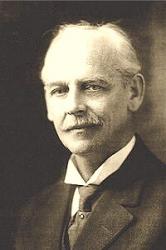Planning worship?
Check out our sister site, ZeteoSearch.org,
for 20+ additional resources related to your search.
- |
User Links
Person Results
Hugh Wilson
1766 - 1824 Composer of "AVON" in The Standard Church Hymnal Hugh Wilson (b. Fenwick, Ayrshire, Scotland, c. 1766; d. Duntocher, Scotland, 1824) learned the shoemaker trade from his father. He also studied music and mathematics and became proficient enough in various subjects to become a part-time teacher to the villagers. Around 1800, he moved to Pollokshaws to work in the cotton mills and later moved to Duntocher, where he became a draftsman in the local mill. He also made sundials and composed hymn tunes as a hobby. Wilson was a member of the Secession Church, which had separated from the Church of Scotland. He served as a manager and precentor in the church in Duntocher and helped found its first Sunday school. It is thought that he composed and adapted a number of psalm tunes, but only two have survived because he gave instructions shortly before his death that all his music manuscripts were to be destroyed.
Bert Polman
Hugh Wilson
Anonymous
Person Name: Composer unknown Composer of "PRESCOTT" in Methodist Hymn and Tune Book In some hymnals, the editors noted that a hymn's author is unknown to them, and so this artificial "person" entry is used to reflect that fact. Obviously, the hymns attributed to "Author Unknown" "Unknown" or "Anonymous" could have been written by many people over a span of many centuries.
Anonymous
William Cutter
1801 - 1867 Person Name: W. Cutter Author of "She loved her Savior, and to him" in The Standard Church Hymnal Cutter, William, born at North Yarmouth, Maine, May 15, 1801, and was removed in childhood to Portland, and educated at Bowdoin College, graduating in 1821. He was subsequently engaged for some time in business in Portland, and again in Brooklyn, New York. Died Feb. 8, 1867. Mr. Cutter, who was a member of the Congregational body, was a deserving writer, who has hitherto missed his due meed of acknowledgment. To his friend Mr. Colesworthy we are indebted for the details of his life and hymnological work.
His hymns include:—
1. Thy neighbour? it is he whom thou. Christian Brotherhood. This appeared in the Christian Mirror for May 30, 1828 (Mr. Colesworthy thinks that he set the types for it), and again in Cheever'sAmerican Poetry, 1831. An altered form of the hymn, "Who is thy neighbour? he whom thou," soon came into use, and was often printed before it was included anonymously in W. B. O. Peabody's Unitarian Springfield Collection, 1835. From being found in that collection it has been attributed to Peabody in error.
2. Hide not thy talent in the earth. Duty. Appeared in the Christian Mirror, Oct. 10, IS28. In some collections it begins with stanza ii., "What if the little rain should say."
3. She loved her Saviour, and to Him. Thankfulness and Duty. Was first published in the Christian Mirror, but the date is uncertain. It was reprinted by Cheever in his American Poetry, 1831. In addition to the above, Cutter wrote several hymns which appeared in the Mirror, and in the Sunday School Instructor, of which he and Mr. Colesworthy were joint editors. His hymns are unknown to the English collections. [Rev. F. M. Bird, M.A.]
--John Julian, Dictionary of Hymnology (1907)
William Cutter
Karl P. Harrington

1861 - 1953 Person Name: Karl Pomeroy Harrington Composer of "PARKER" in The Cyber Hymnal Born: June 13, 1861, Somersworth, New Hampshire.
Died: November 14, 1953, Berkeley, California.
Buried: Middletown, Connecticut.
Son of Calvin S. and Eliza Chase Harrington, Karl earned his AB degree in 1882, and his AM in 1885, from Wesleyan University in Middletown, Connecticut. He studied at the University of Berlin (1887-89) and Yale University (1890-91). He taught high school in Westfield, Massachusetts (1882-85); Latin at Wesleyan Academy in Wilbraham, Massachusetts (1885-87); was a Latin tutor at Wesleyan University (1889-91); Latin professor at the University of North Carolina, Chapel Hill (1891-99); University of Maine (1899-1905); and Wesleyan University (1905). While at the University of North Carolina, he directed the Glee Club. His works include:
The Roman Elegiac Poets, circa 1914
Richard Alsop, "a Hartford Wit"
Walks and Climbs in the White Mountains, 1926
--www.hymntime.com/tch/
Karl P. Harrington


 My Starred Hymns
My Starred Hymns


